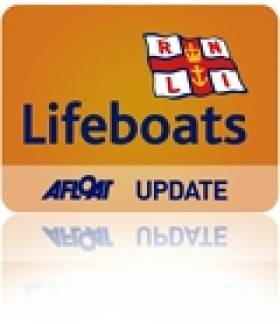Displaying items by tag: Kilcloon
Schoolkids Raise €1,300 for Howth RNLI
#RNLI - Children from Scoil Oilibhéir Naofa in Kilcloon, Co Meath yesterday visited the Howth RNLI lifeboat station to present a cheque for €1,300 raised by pupils through a Christmas fair and a 'Chore Tuesday' at their school.
Project teams from the class presented posters and poems about sea safety, the crew kit and the lifeboat. They also met lifeboat station mechanic and crew member Ian Sheridan, who was so impressed by their work that he presented them with a special RNLI flag to hang in their classroom. All of the pupils then had the opportunity to get onboard the inshore lifeboat.
Following a visit to the school by the RNLI Education Team before Christmas, pupils became interested in the lifesaving work carried out by the volunteer lifeboat crews, and were inspired to organise a fundraiser to help save lives at sea.
"The funds raised by the pupils of Scoil Oilibhéir Naofa will go towards our current fundraising project to fund the running and maintenance costs of the lifeboat station for a week," said Howth RNLI fundraising chair Rose Michael.





























































